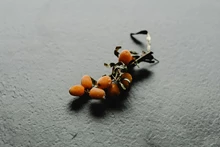
Climate change, according to a recent study published in Science, may emerge as the primary cause of biodiversity decline by the mid of the century, with land-use change playing a significant role. Led by the German Centre for Integrative Biodiversity Research (iDiv) and the Martin Luther University Halle-Wittenberg (MLU), this comprehensive analysis is the largest modelling study of its kind to date, involving thirteen models to assess the impact of both land-use and climate change on biodiversity and ecosystem services.
The study highlights the impact of land-use change on biodiversity, with estimates suggesting a decline of 2% to 11% during the 20th century alone. This wide range of decline, covering various biodiversity metrics, highlights the complexity of the issue. The study's lead author, Professor Henrique Pereira, highlights the importance of their methodology, which incorporates data from every region of the globe to produce a more thorough estimate of global biodiversity trends.
The study evaluates how changes in land use affect ecosystem services, which are essential benefits that nature offers to humans, in addition to biodiversity. While provisioning services such as food and timber production have seen a marked increase, regulating services like pollination and carbon sequestration have experienced moderate declines.
However, the most concerning aspect of the study revolves around future projections. By incorporating climate change into their models, researchers predict a shift in the primary driver of biodiversity decline. While land-use change remains significant, climate change is poised to become the dominant force by the mid-21st century. The consequences of this change are significant as, depending on emission scenarios, biodiversity loss is predicted to occur in every region of the world.
Dr. Inês Martins, a co-author of the study, underlines the importance of these projections as tools for understanding potential trajectories and guiding policy decisions. The study does not merely predict future outcomes but aims to highlight the consequences of different policy choices. Even under the most sustainable scenario assessed, current policies fall short of adequately addressing biodiversity loss, indicating the need for urgent action.
The findings also highlight the complexity of policy decisions, with certain measures aimed at mitigating climate change potentially aggravating biodiversity loss. The study advocates for a holistic approach, considering the effectiveness of various policies in safeguarding biodiversity and ecosystem services.
Despite uncertainties inherent in modeling, the study's conclusions are clear: current policies are insufficient to meet international biodiversity goals. Renewed efforts are urgently needed to address human-induced biodiversity change, one of the most significant challenges facing our planet.
The study serves as a wake-up call, highlighting the urgent need for decisive action to mitigate biodiversity loss and preserve the essential services provided by nature. Only through concerted efforts and informed policy decisions can we hope to reverse the alarming trends revealed by this groundbreaking research.
(Data Source: German Centre for Integrative Biodiversity Research)










